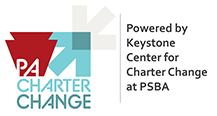State House Passes Meaningful Charter School Reform
On July 7, 2023, the Pennsylvania House of Representatives, in a bipartisan vote, approved House Bill 1422, which signifies the most substantial reforms to the state’s Charter School Law since the creation of cyber charter schools in 2002. This bill builds upon previous attempts to reform charter school law over the past two decades.
Under the current funding structure, school districts are spending more than one billion dollars on cyber charter school tuition based on a flawed funding formula that does not take into account the lower costs of providing a virtual education and uses a one-size-fits-all approach to funding special education students. These overpayments allow cyber charter schools to spend millions of taxpayer dollars on advertising and sponsoring public events and force school districts to raise local property taxes.
Cyber charter schools, despite being public schools, are not subject to the same level of accountability and transparency as school districts. The management companies, which run many of the state’s cyber charter schools, are not subject to any of the state laws that would allow taxpayers to see how their money is being spent.
Key highlights of HB 1422 include:
Fiscal responsibility & funding reform
- Establishes a standard statewide cyber charter tuition rate for non-special education students of $8,000, which more accurately reflects the costs of educating a child virtually and ending the wide disparity in rates affecting tuition.
- Implements a tiered formula for special education funding which mirrors the formula used to provide state special education funding to school districts, directing dollars based upon the needs and costs of providing special education to each student.
- Imposes reasonable restrictions for advertising expenses, event sponsorships, gifts and other expenses not related to providing an education for students.
- Places caps on unassigned fund balances to make sure the money cyber charter schools receive goes to educate children.
Pupil concerns
- Requires cyber charter schools to report on the rates which they identify students for special education to prevent overidentification.
- Requires cyber charter schools to conduct regular wellness checks for each student to ensure their wellbeing and to verify their participation in the school’s academic program.
Corporate governance/ethics
- Requires cyber charter school board meetings, including committee meetings, to follow the Sunshine Act.
- Requires cyber charter school trustees and administrators to live by the same financial and ethical reporting standards as public school board members and school district officials.
- Improves cyber charter school governance through conflict of interest provisions for boards of trustees, annual audit requirements and expanded public reporting requirements.
- Requires cyber charter school boards to include at least one parent of an enrolled student on the board.
- Creates clear and standard processes for applications to create, amend or renew a charter for a cyber charter school.
The Keystone Center for Charter Change urges the Senate to take up this vital issue and get it to the governor’s desk for the benefit of Pennsylvania’s students and taxpayers.
